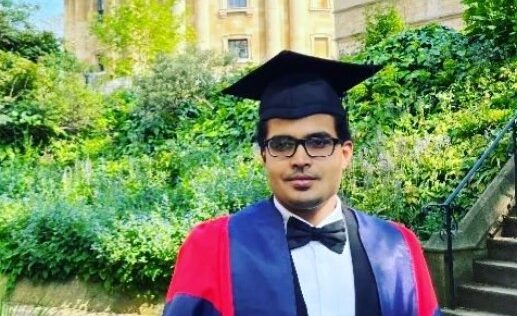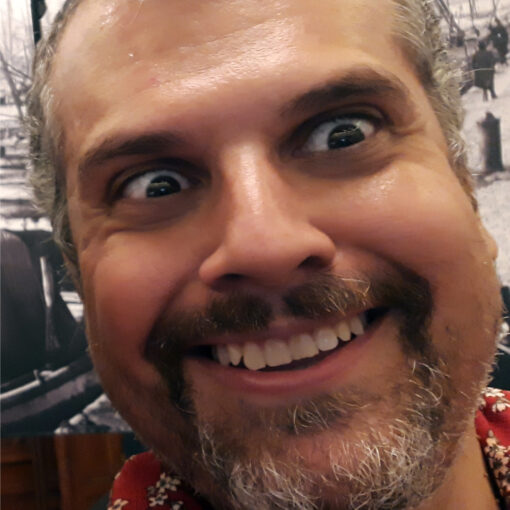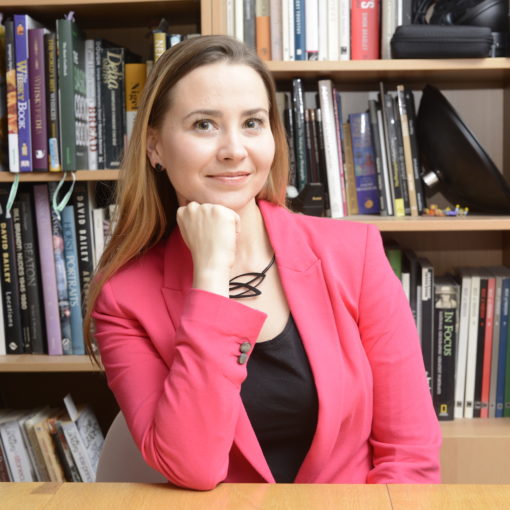DPhil Engineering Science, University of Oxford, 2020
| Senior Principal Scientist | |
|---|---|
| UCB Pharma | |
Year entered into a non-academic position: 2020
Job highlight: Working on the AstraZeneca vaccine programme.
Left academia after: PhD
What’s your background?
I completed my undergraduate degree at the Indian Institute of Technology, Kharagpur, with a major in Mechanical Engineering and minor in Aerospace Engineering. It was very competitive, and there was a real “shark tank” pressure of making it there. After that I applied to do a DPhil at Oxford, managed to get a Rhodes scholarship, and initially began doing my DPhil in Engineering Science with a focus on civil engineering which would have been in line with my previous training. But two months later when I saw that some people were changing their courses, I thought “Why don’t I do the same?” Machine learning was becoming pretty hot at the time, so I cold-emailed a bunch of potential supervisors in 2016 and transitioned into doing artificial intelligence for medicine.
Why did you move away from academia?
Since about 2015, a lot of groundbreaking research in machine learning has come from industry, so this is one domain where jumping into industry isn’t that unusual compared to some other academic domains. While doing my DPhil, I also interned with companies like Shell and Microsoft, and had a good sense of what the office environment was like, so the transition wasn’t very disconcerting.
How did you get this job? Did you face any challenges when considering a move away from academia or applying for the role?
I applied for a few jobs and didn’t really hear back from any of them. But my CV was picked up by someone I knew from conferences, and he thought I’d be a good fit for another team in the organization.
I transitioned into my current job in 2020 and that was a very weird time for any kind of transition because of the COVID pandemic. But because it was still a research job, I was still reading papers and attending academic conferences, so it wasn’t that different. One other small challenge I faced was that I was slightly younger than most of my colleagues, which created a slightly different dynamic especially in a leadership position.
What motivated you to/why did you choose the sector you transitioned into?
Broadly, I wanted to stay within AI for healthcare, but to be honest when I was looking for a job in the summer of 2020 I didn’t have much choice!
Did you think you had the skills required for your current position before you started? Were you right?
Mostly – in my experience, job descriptions need to be slightly imprecise because they don’t really want to exclude people or trigger unnecessary self-selection. A good rule of thumb is that if you meet about 50-60% of the job description, you should apply.
How did your PhD prepare you for your current job? For example, what were the transferable skills that you developed during your PhD that are most relevant to your current job?
A PhD teaches you to deal with disappointments like nothing else – that’s probably the most important skill. Beyond that, my PhD required a lot of data analysis and programming which was directly useful – you can also find online courses which teach you that. Then there’s also experience in project management and teamwork, especially if you’re part of clubs and societies in the university or college.
Did you have any preconceptions about your sector that proved to be wrong?
I had previously worked for some start-ups, and I had the impression that they tend to have a ‘flatter’ organisational structure whereas big companies usually are more hierarchical. From my experience, it’s been almost the opposite, and I’ve found my company to have a relatively flat structure, though perhaps that’s because I’m working in the cutting edge of my company’s operations, which is quite a creative space.
Can you describe a typical week in your job?
A typical week involves a lot of stakeholder management and engagement with external partners. A lot of talking to people and formulating those scientific and industrial questions that we want to address. Quite a bit of work around directing new research plus hands-on work with coding when I can, though sometimes that spills outside working hours.
What is the workplace culture like? Please include comments on work-life balance, flexibility, remote working?
Currently it’s a hybrid environment, so I do work remotely quite often, and like I mentioned there is a relatively flat structure.
Do people with a PhD frequently get hired in the company/sector?
Yes!
What are your favourite parts of your job?
I love seeing the long-term impact for people. A lot of my work is about optimizing drug discovery and drug safety – reducing the time it takes for drugs to become available and lowering the price of medication. The impact horizon is substantial, and one highlight in particular was being part of the COVID-vaccine research.
What are your reflections on your career path?
My career path has been quite weird. I’ve often made big life decisions just 48 hours ahead of time and have a bias towards action. Going from mechanical engineering to studying machine learning, and now working for a pharmaceutical company – it hasn’t been a conventional career path.
Do you have any advice for current graduate students and postdocs considering a career outside of academia?
Each person has their own approach towards career, and some people really enjoy having structure and clear timelines. Like I mentioned earlier, though, I have a bias towards action and would encourage people to throw caution to the wind. There’s often a narrative that we – especially researchers – need to be very methodical and rational, but I don’t think so. It’s okay to be chaotic and disorganised and to take risks.
I love cats, and I often tell people, “Be like a cat.” Cats don’t have imposter syndrome; each cat believes it’s the most special cat in the world. If you’re doing a PhD, be a cat.
What do you know now that you wish you’d known when exploring a transition?
It’s important to have a life! For the first two years of my PhD I had a very lonely life. I didn’t go to any parties, and I think that’s a bad way of living. I may have over-compensated for that in my third year, but I think it’s important to treat your PhD like a job, not as a life mission.
Can you recommend any relevant resources, organisations or events that might help somebody new to the sector find out more about it?
Find opportunities to network – take advantage of Oxford societies or department events. Conferences are also very useful, especially if you’re presenting something. Personally, I also think that the quality of connections matters more than the quantity. Some people try to meet everyone at conferences, but for me I’ve found it more fruitful to have deeper conversations with a handful of people instead.





